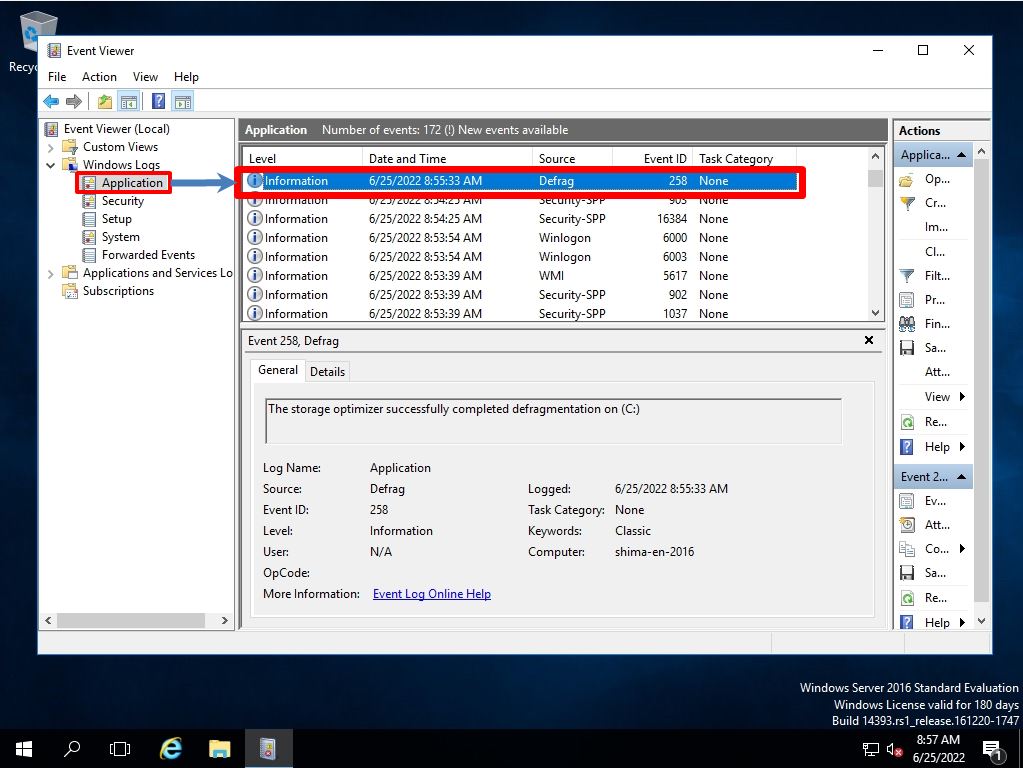Defragmentation is a function that rearranges fragmented files on a hard disk (HDD) or solid state drive (SSD) into the correct location. You can do this with the free tool “Defragment and Optimize Drives” that is available as standard in Windows Server 2016. The execution time due to defragmentation and optimization will increase depending on the capacity of the drive and the number of fragmented files.
By defragmenting the discs, it may be possible to eliminate the data division state and increase the read / write speed. * Defragmentation is a function to organize scattered data. It is not a function to increase the free disk space.
In this article, we will explain the “Defragment and Optimize Drives” execution procedure using Windows Server 2016, and how to check the log in the event viewer that can check the defragmentation execution history.
Windows Server 2016 Disk Defragmentation: How to perform “Defragment and Optimize Drives”
Step 1:
Select the Windows mark at the bottom left of the desktop screen.
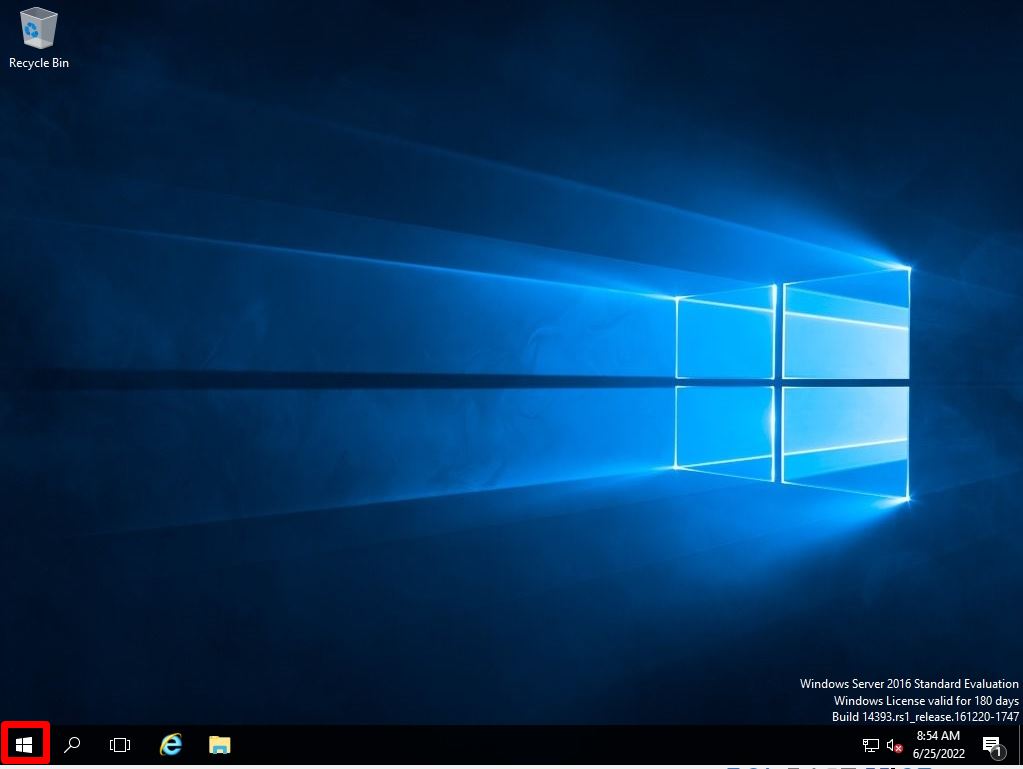
Step 2:
Select Windows Administrative Tools.
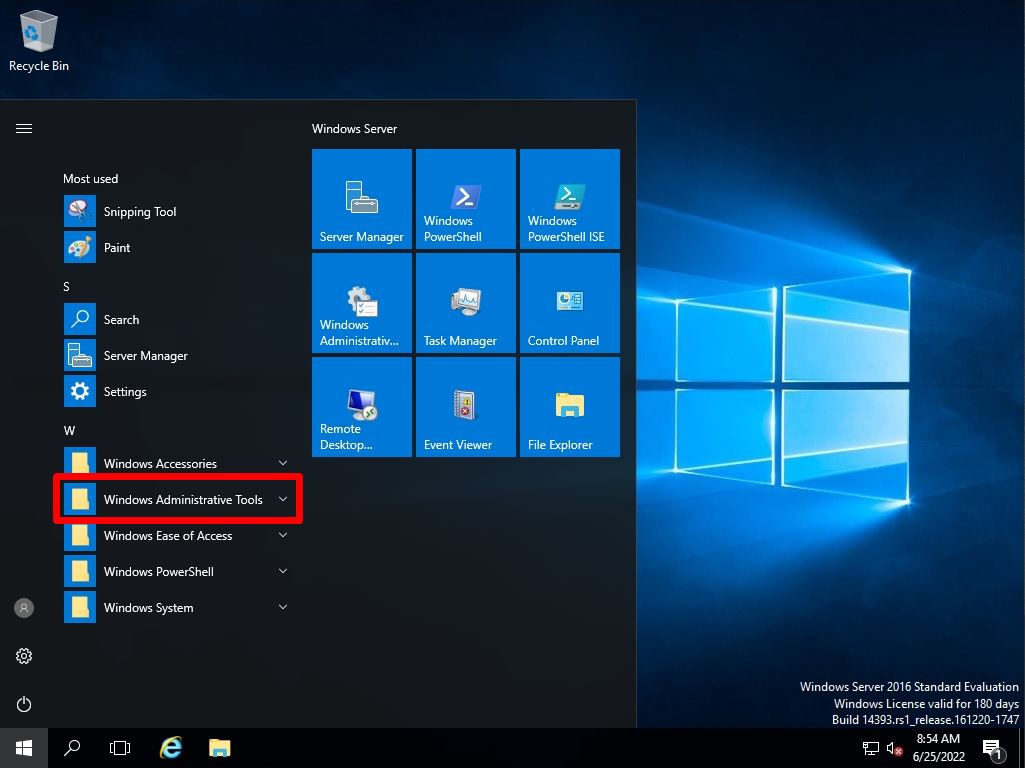
Step 3:
Select Defragment and Optimize Drives.
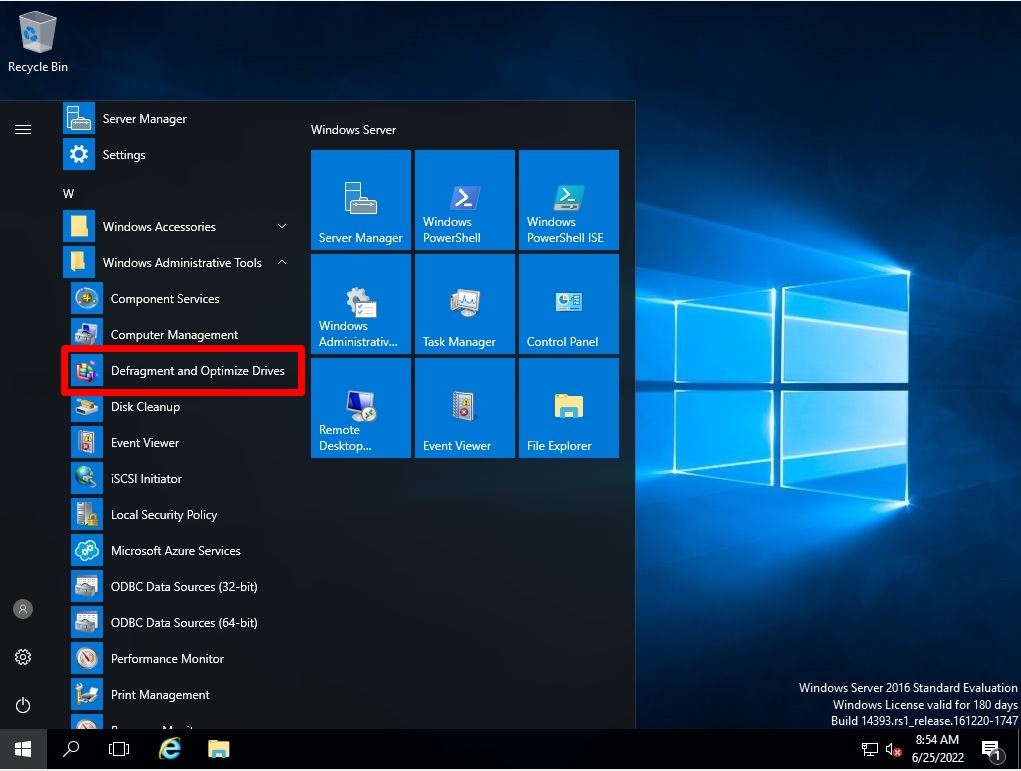
Step 4:
Drive optimization screen: Select a drive such as C drive or D drive -> Select “Optimize”.
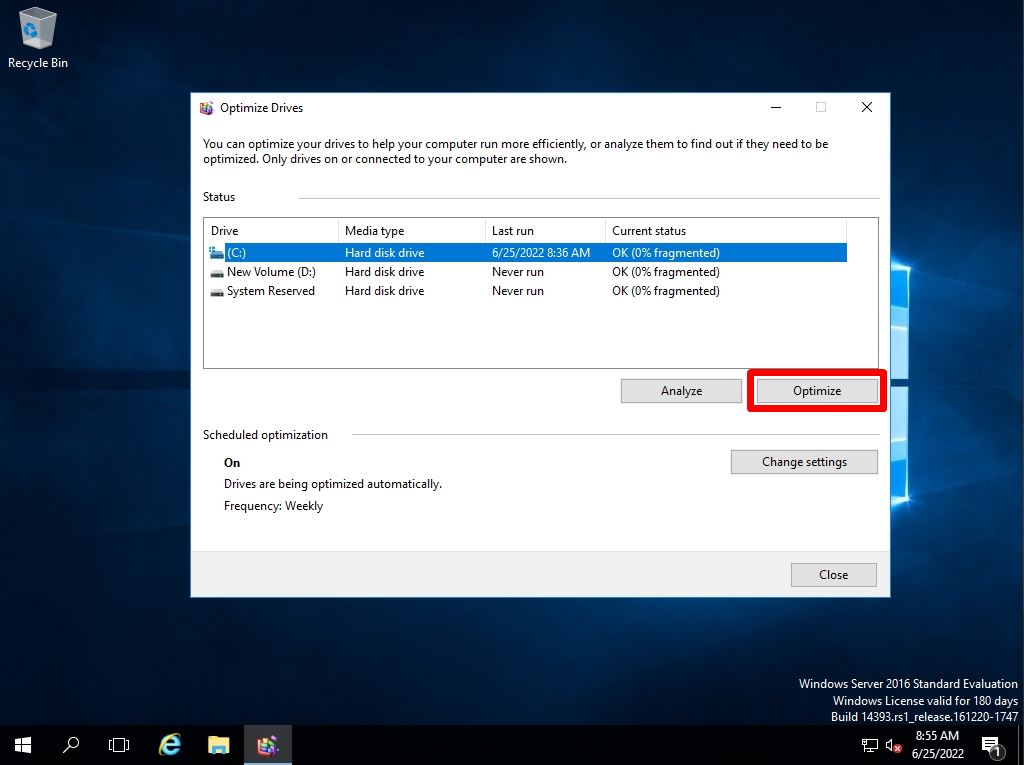
Step 5:
Defragmentation is complete if “OK” is displayed in the execution completion time and Current Status in Last run.
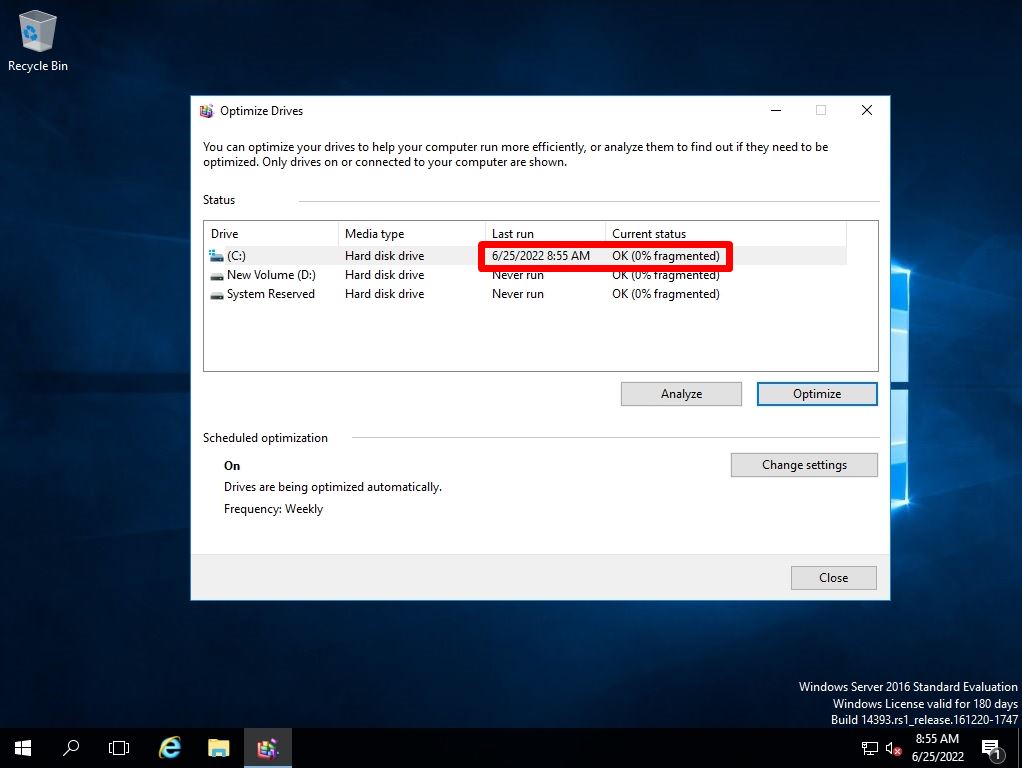
Windows Server 2016 Disk Defragmentation: Event Viewer Log Check
You can see the results of Defragment and Optimize Drives in the Event Viewer log. Right-click on the Windows Mark at the bottom left of the desktop screen –> select Event Viewer.
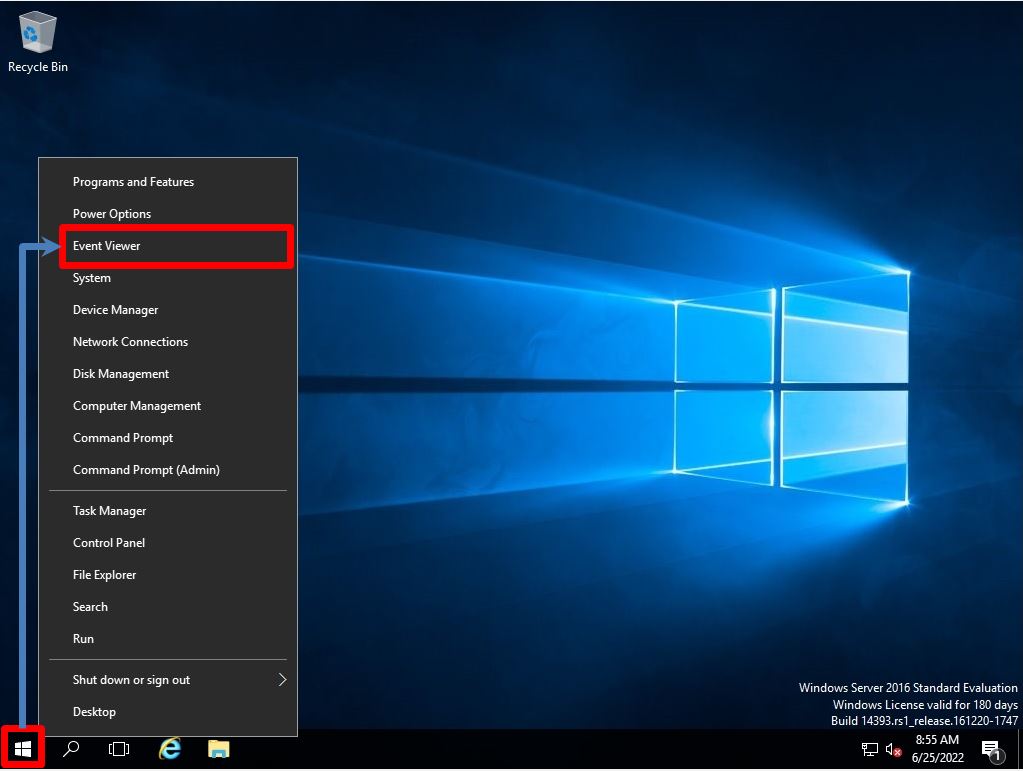
Windows Log -> Application -> The “Defrag” log is output to the source and the result is displayed.
